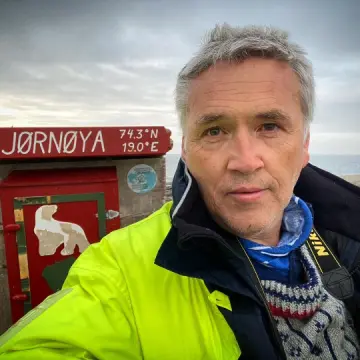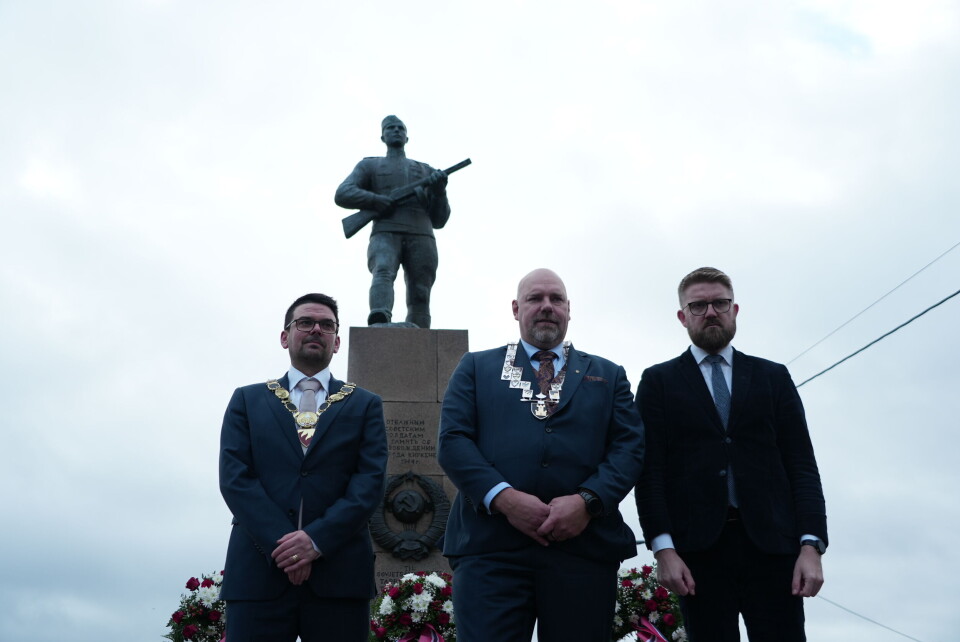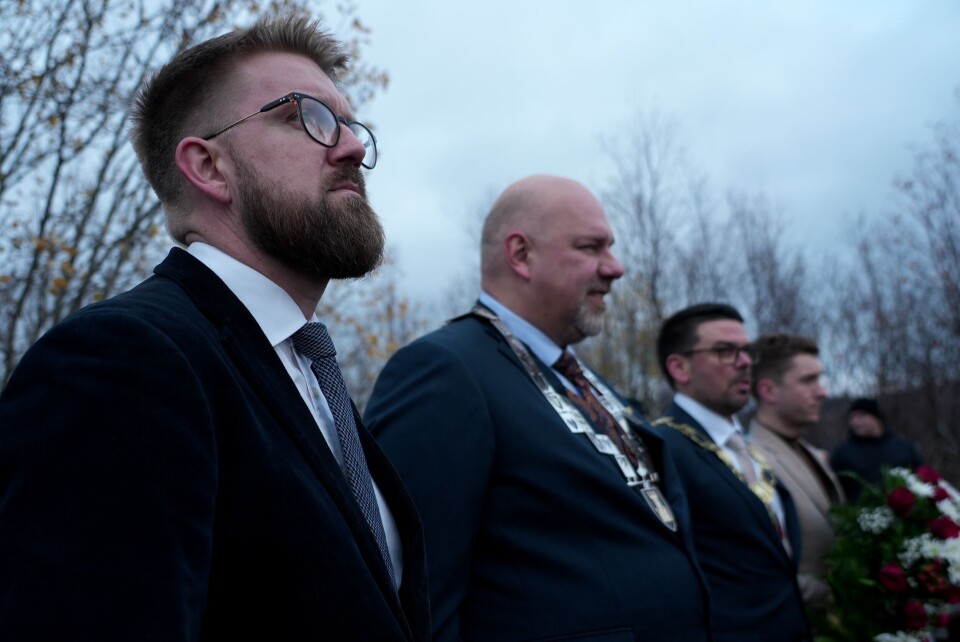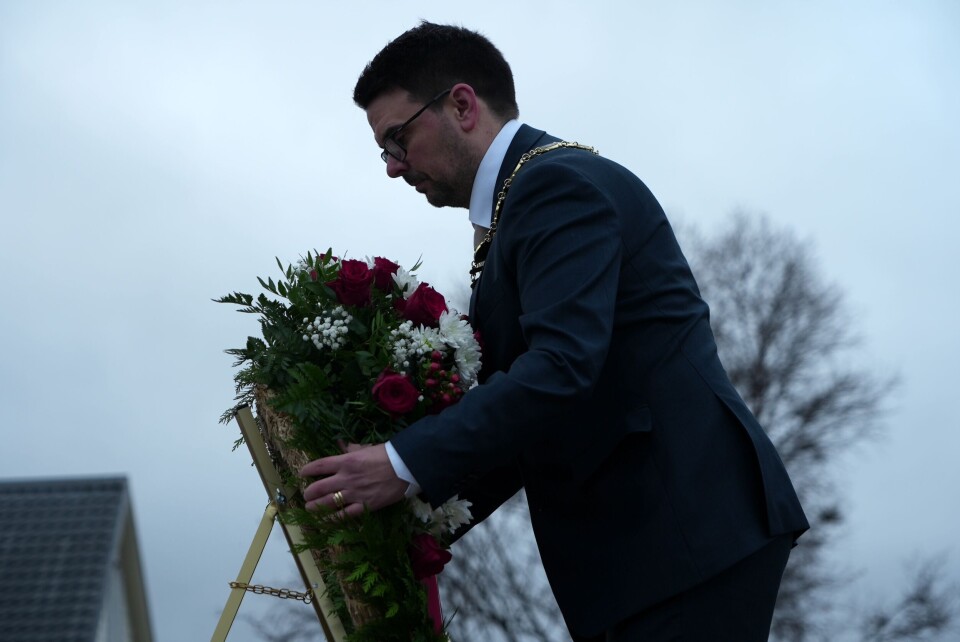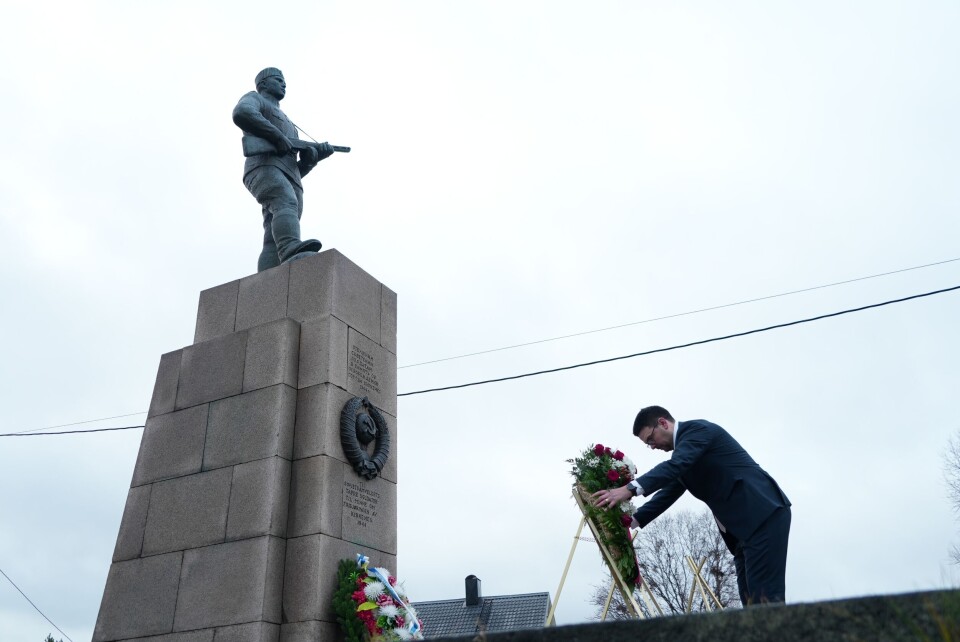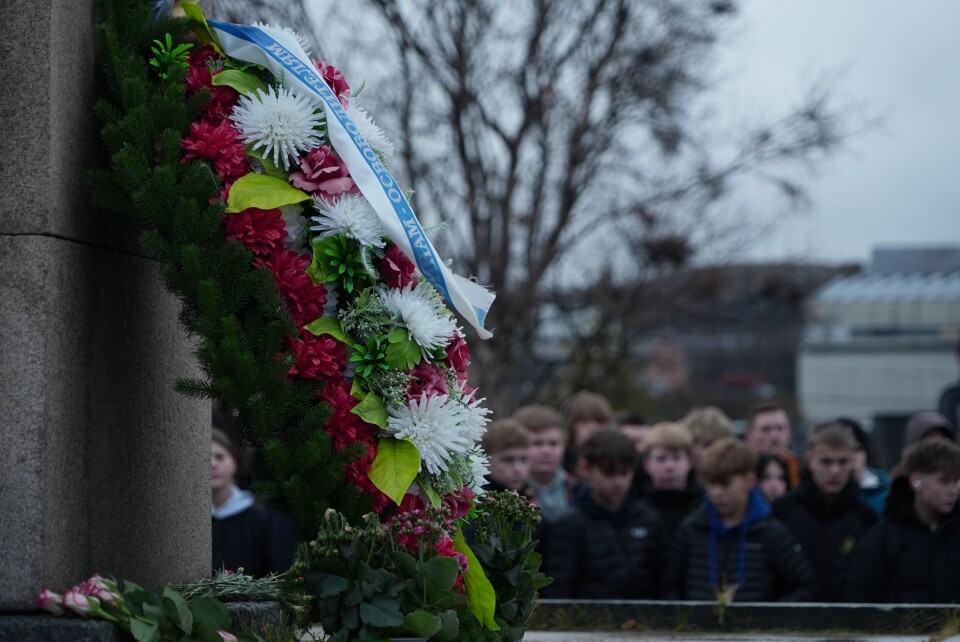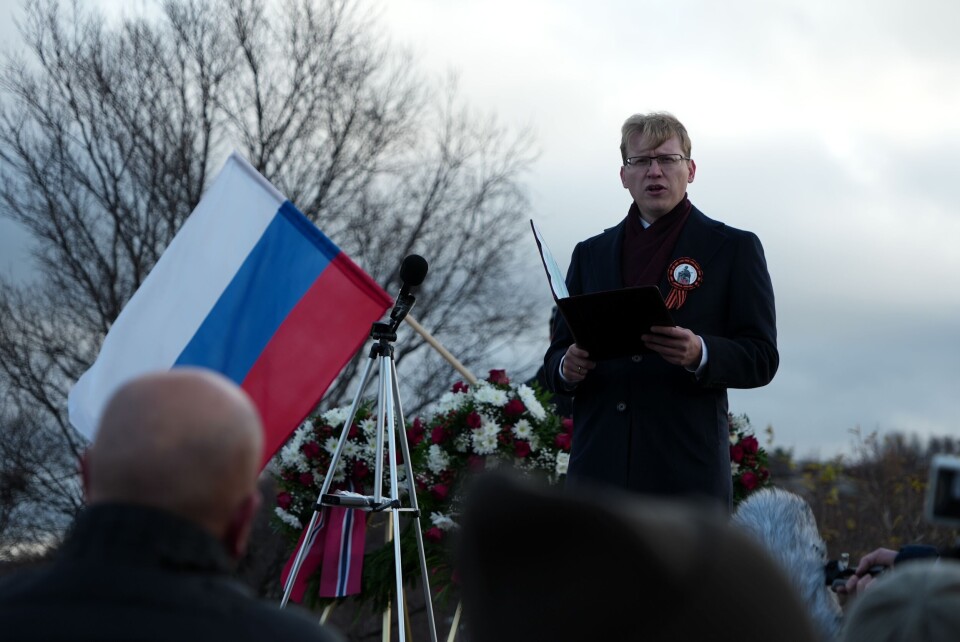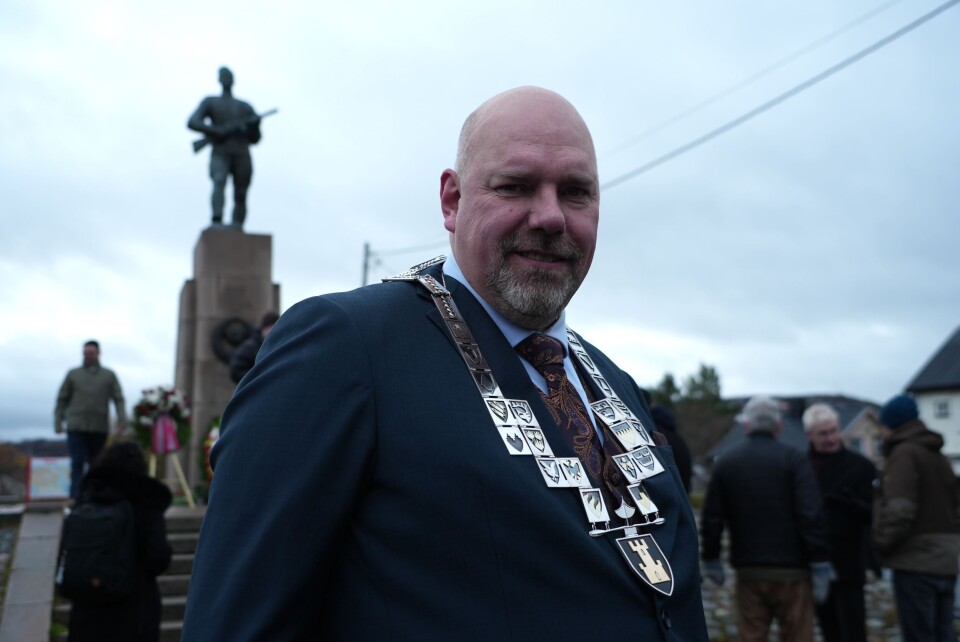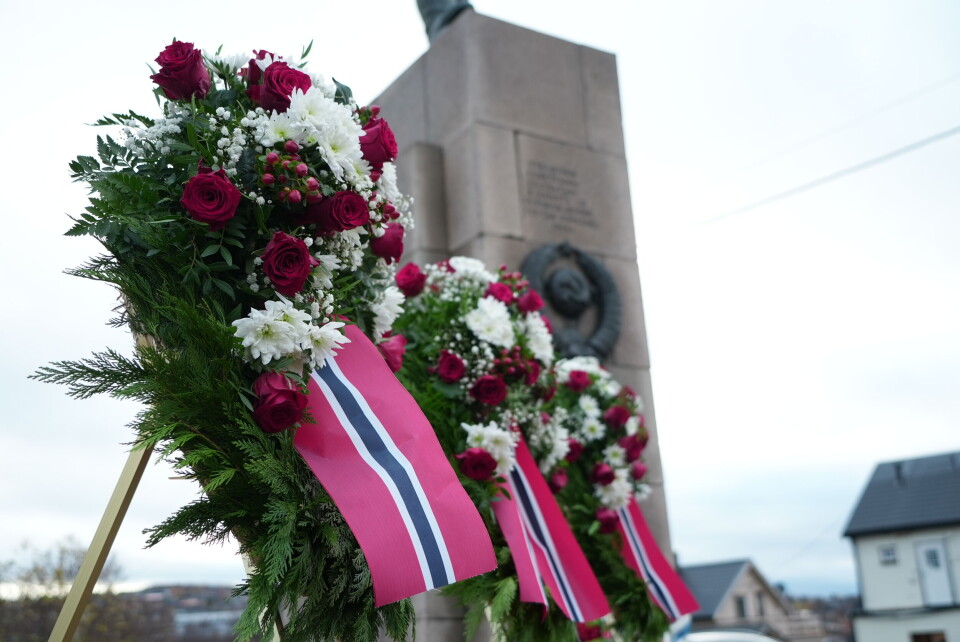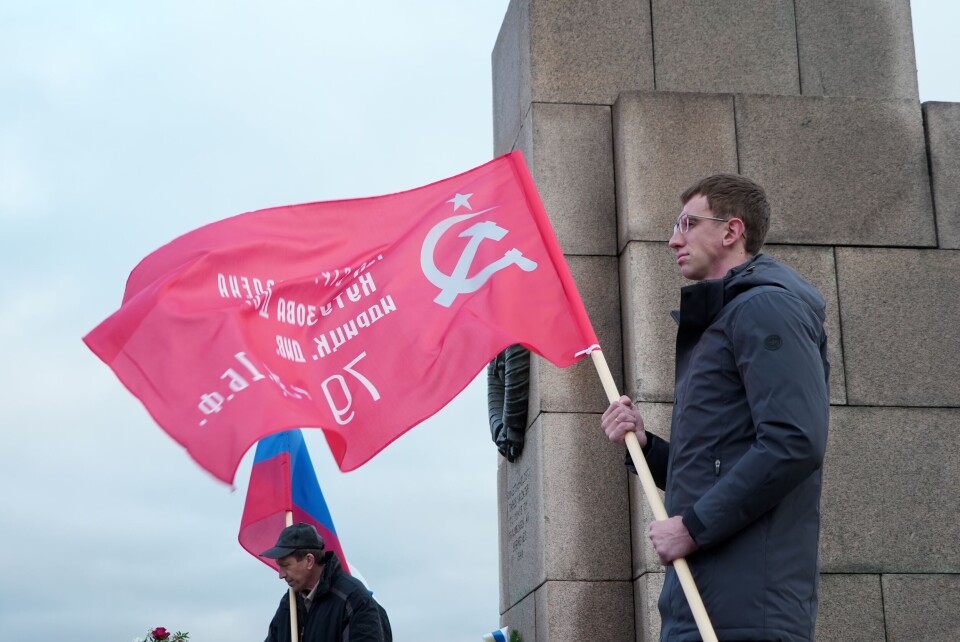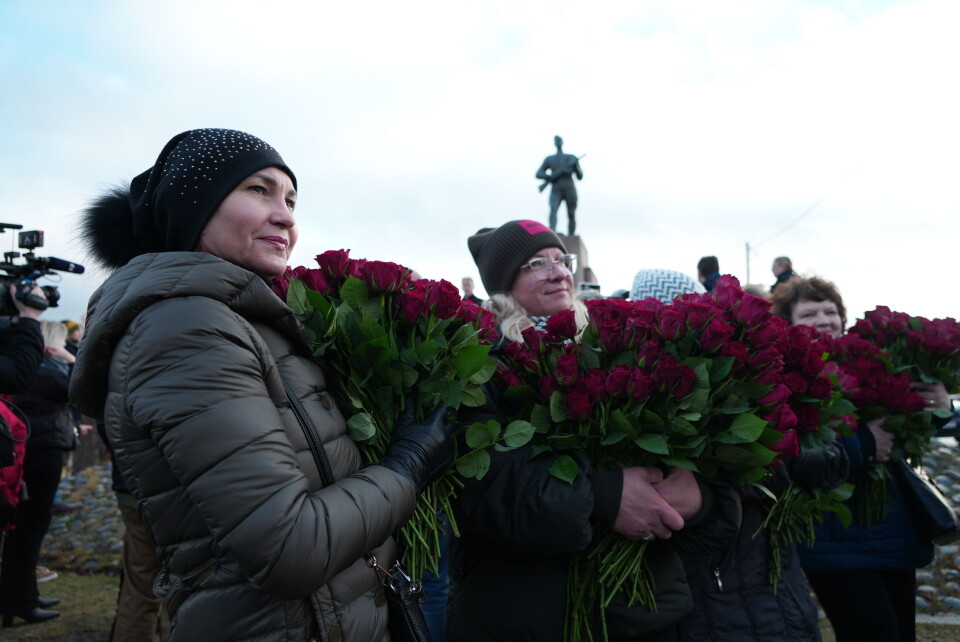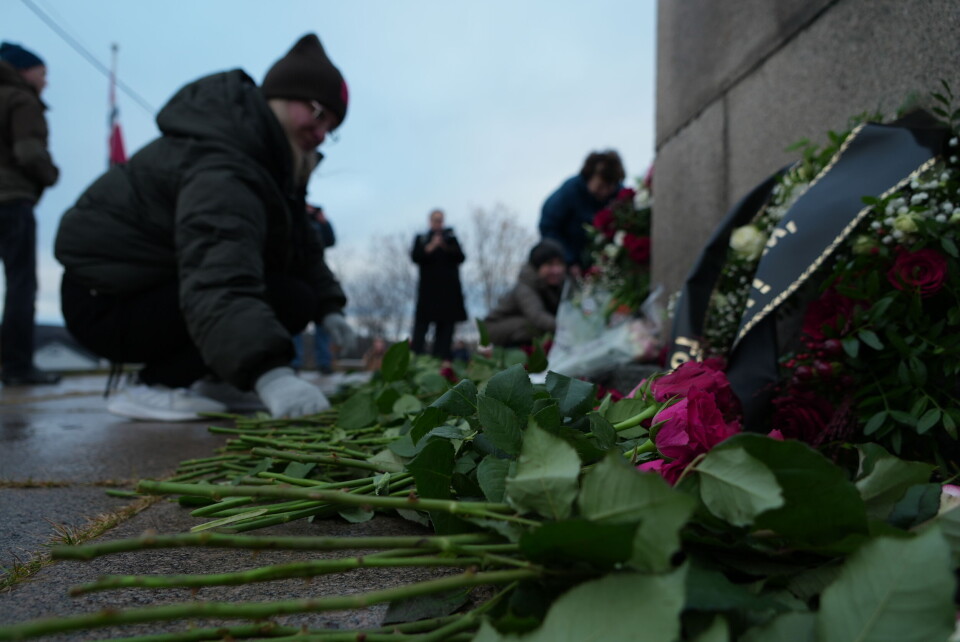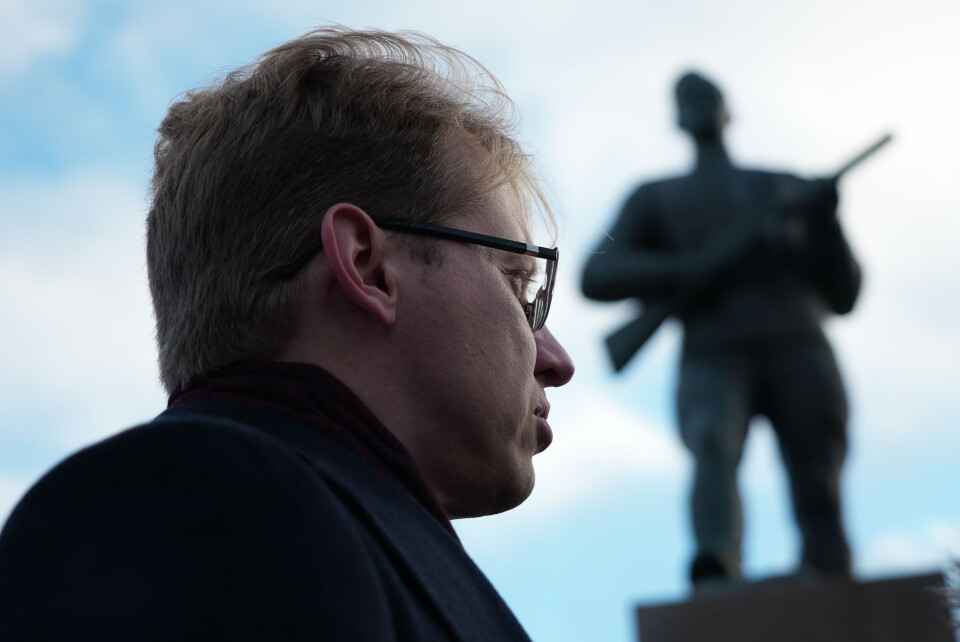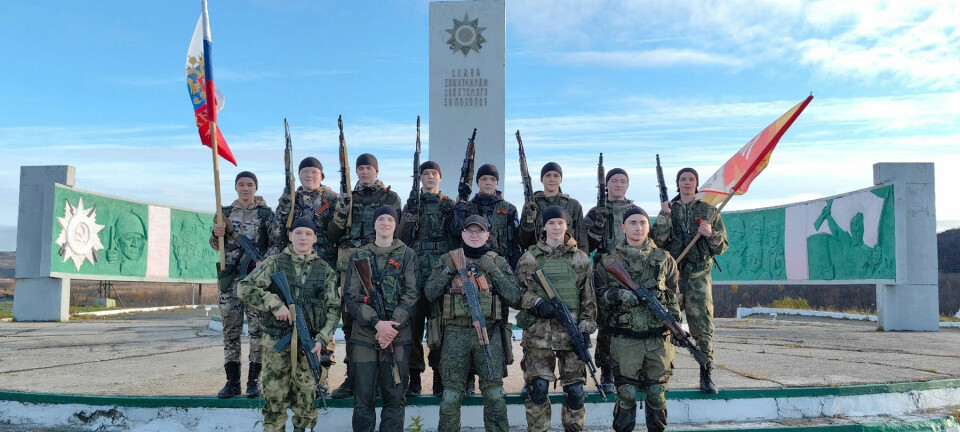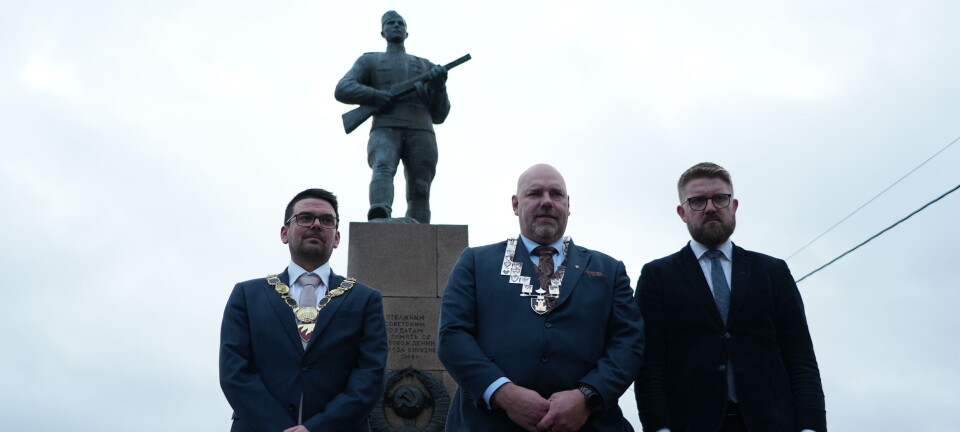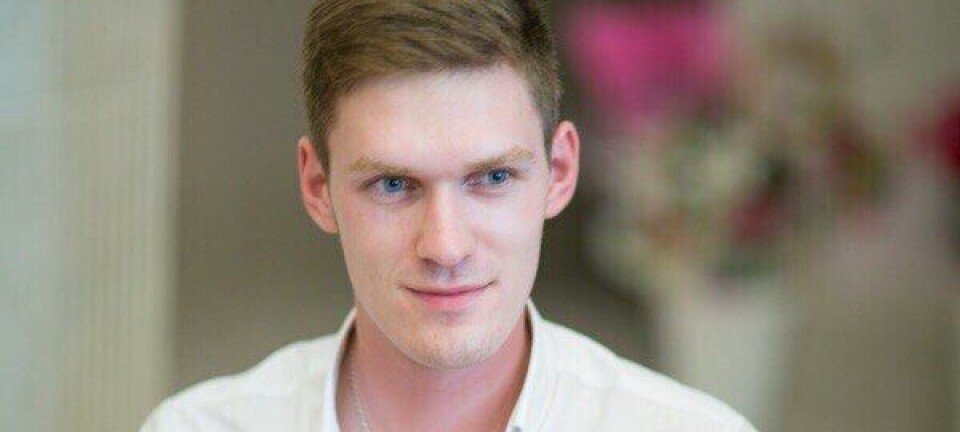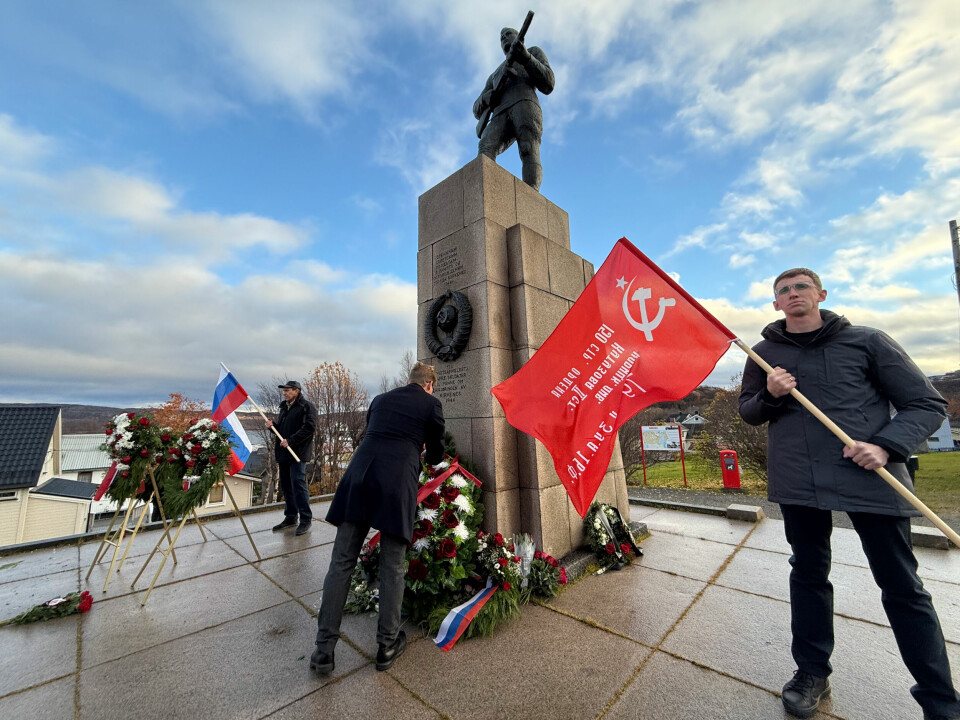
Norway accommodated for Russia’s propaganda show
Norwegian authorities removed their remembrance wreaths so Moscow’s diplomat in Kirkenes, Nikolai Konygin, could stage Russia’s two wreaths in the centre when marking the 80th anniversary of the Red Army’s liberation of the border town.
After last year’s controversies at the Soviet war memorial, the Foreign Ministry in Oslo wanted to deescalate tensions by agreeing, together with Finnmark county officials, to give Russia the centre place for wreaths.
Two ceremonies were arranged, the Norwegian first in the morning.
Soon after the speeches, the Norwegian organisers moved their three wreaths laid by the local Kirkenes Mayor, the Finnmark County Mayor and the State Secretary from the Ministry of Foreign Affairs.
County mayor in Finnmark, Hans-Jacob Bønå, said to the Barents Observer that his people moved the wreaths “to show respect for each other” before the Russian ceremony that followed two hours after the Norwegians left.
Finnmark region is traditionally more willing to balance tensions with Russia in a softer way than other European regions bordering Putin's aggressive foreign policy.
St. George's ribbon
With the Norwegian wreaths on the sideline, the stage in front of the monument was cleared for Nikolai Konygin and his men to enter with a big Russian flag. The diplomat was wearing the St. George's ribbon, a symbol banned from display in several European countries as it is linked to glorifying Russia's ongoing war against Ukraine.
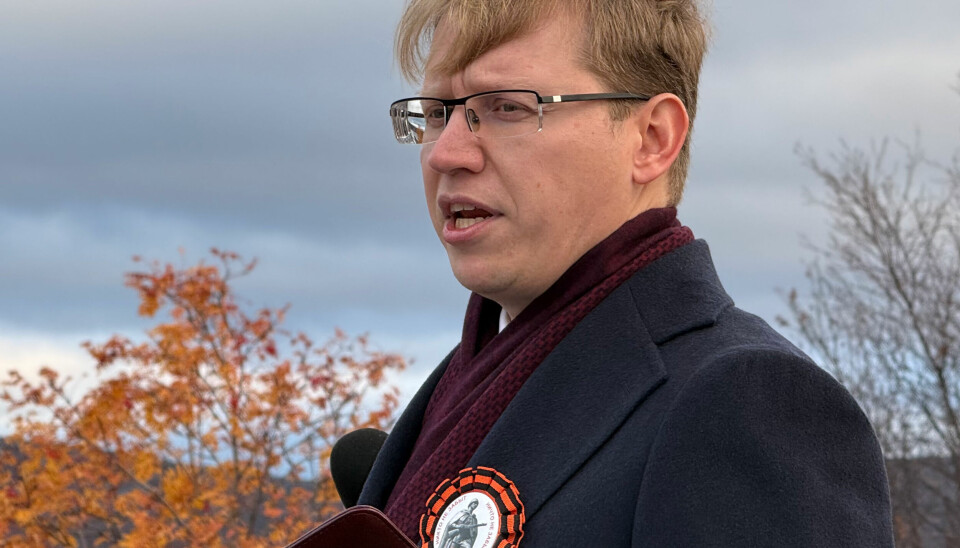
The Russian Consul General denied to answer questions about his speech from the Barents Observer.
Konygin's two wreaths were soon surrounded by hundreds of red roses laid down by a group of ladies from the Russian diaspora in Kirkenes.
One of the women, speaking with the Barents Observer, proudly told how she together with her spouse on Victory Day (May 9th) this year was invited to the tribune to attend the Murmansk governor and high ranking officials from the Northern Fleet, overlooking the military parade on the five-corner square in the north Russian city. After all the military vehicles, weaponry and troops had passed by, she joined the after-parade marching side-by-side with the Wagner group's veterans and a big "Z" flag, the pro-war propaganda motif.
In Kirkenes, the woman laid a wreath at the monument with wordings from Murmansk veterans, commemorating the Red Army's liberation of eastern-Finnmark. The text on the wreath did not detail which veteran group in Murmansk the regards came from.
No repeat of last year's turmoil
What at the 70th and 75th anniversary used to be a common commemoration with Russia’s Foreign Minister Sergei Lavrov and his Norwegian counterparts, has after 2022 turned into a day used by Moscow to stir strife over second world war history.
Last year, Consul General Nikolai Konygin put his tricolour wreath on top of the Norwegian wreath, a move that made Kirkenes mayor Magnus Mæland to return to site and place the two decorations next to each other side by side.
Mayor Mæland's adjustment of the Russian wreath was soon called an “act of vandalism” by the foreign ministry in Moscow which summoned Norway’s Ambassador over the incident at the war memorial in Kirkenes.
State Secretary in the Ministry of Foreign Affairs, Eivind Vad Petersson said to the Barents Observer that Russia's Consul General's ceremony last year was not a worthy one.
Asked why Norway this year decided to pave the way for Russia's propaganda show by moving the wreaths to the sideline, the State Secretary said it was important for Norway to arrange for "a worthy ceremony".
The State Secretary made clear that Russia abuses history.
“Russia is again waging a war of aggression in Europe and I take a strong distance from how the regime are abusing our common war history to justify this war [against Ukraine].
Disturbing
Professor Kari Aga Myklebost with the UiT Arctic University of Norway was present at the two countries' ceremonies on Friday.
"We have freedom of speech in Norway. At the same time it is disturbing to see such a Russian propaganda show happening in Norway in 2024, amid Russia's war against Ukraine," Myklebost said.
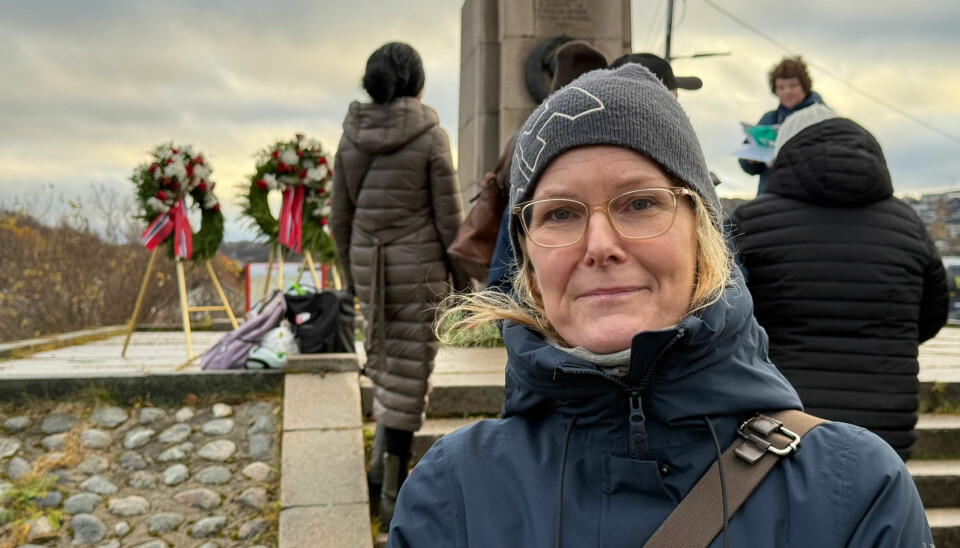
She said the Russian ceremony was “very much in line with the selective and highly politicised memory policy line of the Kremlin.”
The professor, though, noted that Consul General Konygin in his speech “kept a diplomatic tone and avoided drawing a line to Russia’s ongoing warfare in Ukraine, as he has done on previous occasions.”
This year, “he primarily appealed to Norwegians by emphasising the great sacrifices and sufferings of Soviet soldiers and prisoners of war in Norway, and praised the efforts of Norwegian authorities to preserve Soviet war memorials,” Myklebost said.
"At the same time, he introduced the concept of concentration camps when referring to German labour camps in Norway for Soviet prisoners of war during WWII. Such attempts at hijacking the Holocaust have become more commonplace in the Kremlin´s memory policy over the last few years, arguing that Nazi Germany conducted an extermination policy towards Slavic peoples, not only towards Jews. This is of course historical nonsense and has no root in the realities of the war years in Norway. It´s applied because it fits the Kremlin´s needs for enemy perceptions and portrayal of Nazi atrocities," professor Kari Aga Myklebost said.
See more photos from the ceremonies in Kirkenes in the gallery below.

